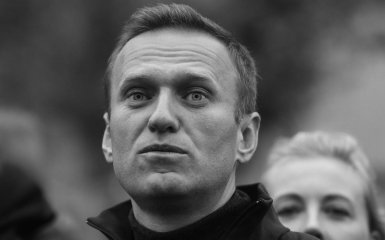On February 16, the Russian authorities officially announced the death of opposition leader Alexei Navalny. He died after a walk in the prison. The online.ua has collected the most important and interesting facts of the political career of the "main enemy" of dictator Vladimir Putin.
Who is Navalny, and what is essential to know about him
Alexei Navalny is one of the most famous Russian opposition politicians, whom the aggressor country used to praise as the "main enemy" of the Kremlin chief.
Navalny's father is a Ukrainian from the village of Zalissia in the Kyiv region. The politician himself told himself he is half Ukrainian and half Russian, and most of his relatives live in Ukraine.
A relative of a Russian oppositionist also died during the massacre in Buchi.
Navalny organised many times mass protests against corruption in Russia and directly against the Putin regime.
Navalny was also the leader of the Anti-Corruption Foundation, which actively conducted investigations to expose corruption schemes in the Russian Federation.
His most popular investigations were those related to the fortunes of dictator Putin, ex-president of the Russian Federation Dmitry Medvedev and people from their entourage, who have been embezzling budget money for decades.
Poisoning and imprisonment of Alexei Navalny
On August 20, 2020, Alexei Navalny was poisoned on the plane when he was returning from Tomsk to Moscow.
Alexei Navalny was poisoned with the nerve agent "Novichok" and hospitalised in serious condition. After that he fell into a coma.
On August 24, the oppositionist was taken to the Berlin "Sharite" clinic for treatment.

He was discharged from the hospital on September 23 and returned to Russia on January 17, 2021. Security forces detained Navalny at the airport, which caused mass protests across the country.
In the winter of 2021, the Russian authorities sent the leader of the Anti-Corruption Foundation, Alexei Navalny, to prison for two years and eight months. In 2022, his term was extended, adding another nine years of imprisonment, accusing him of fraud. In June, the Russian Federation began a new process against Navalny — the oppositionist was accused of "extremism."
Navalny and Ukraine. What the oppositionist said about the war, Crimea and the Maidan
The Russian oppositionist always made ambiguous statements about Ukraine: there were cases when he supported the Ukrainian people and expressed a clearly pro-Kremlin position.
For example, in January 2014, the People's Alliance party, led by Alexei Navalny, expressed support for the participants of the Revolution of Dignity and condemned the violent suppression of the protest by the authorities.
Moreover, Navalny claimed that Ukraine's membership in the European Union does not contradict the interests of Russia, which should also move towards European values.
What is also interesting is that Navalny did not support Russia's annexation of Crimea. Still, he also stated that he considers the peninsula a part of Russia, that it will remain so and will not return to Ukraine shortly.
The oppositionist cynically emphasised that "Crimea is not a sausage sandwich" to bring it back and forth but later apologised for his "unsuccessful metaphor."
On June 9, 2017, Navalny admitted that Russian troops were fighting in Donbas and promised to withdraw them if he became the president of Russia.
On May 31, 2018, he published an appeal to the Russian authorities calling for the release of Ukrainian director Oleh Sentsov, imprisoned in Russia.
On February 24, 2022, Navalny sharply criticised the full-scale invasion of the Russian Federation into Ukraine. The oppositionist was convinced that this war was Putin's attempt to divert the attention of Russian citizens from internal problems and to cover up their robbery by the authorities.
Moreover, during the war, Navalny changed his position on Crimea and declared that the 1991 constitution determined Ukraine's borders, and Russia should recognise them.
Navalny has called many times for the unconditional victory of Ukraine in the war against the Russian Federation.
More on the topic
- Category
- World
- Publication date
- Додати до обраного


